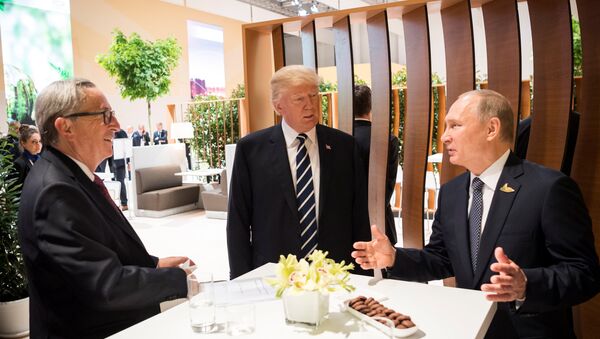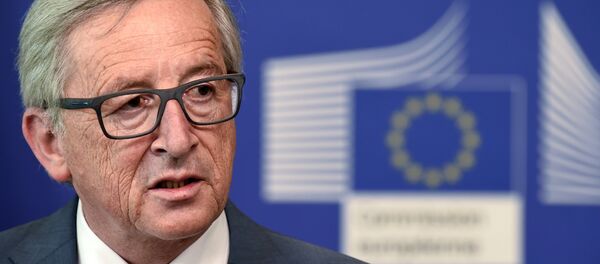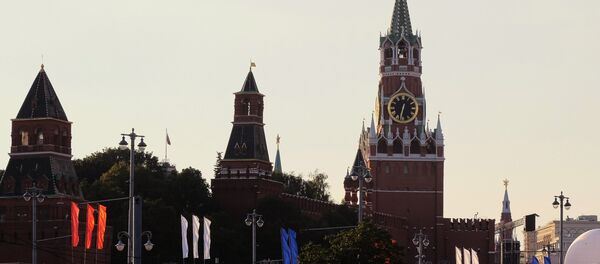The EU is making preparations to retaliate against new US sanctions against Russia, The Financial Times has reported. According to a note prepared for the upcoming Wednesday meeting of the European Council, EC President Jean-Claude Juncker has requested an urgent review of Brussels' options for retaliation in the event that European energy companies and other business were to be targeted by the new anti-Russian sanctions being proposed by the US Congress.
Otherwise, the note warns, the EU might adhere to European laws to prevent the US restrictions from being "recognized or enforceable" on the continent, or even appeal to "WTO-compliant retaliatory measures," presumably in the area of trade.
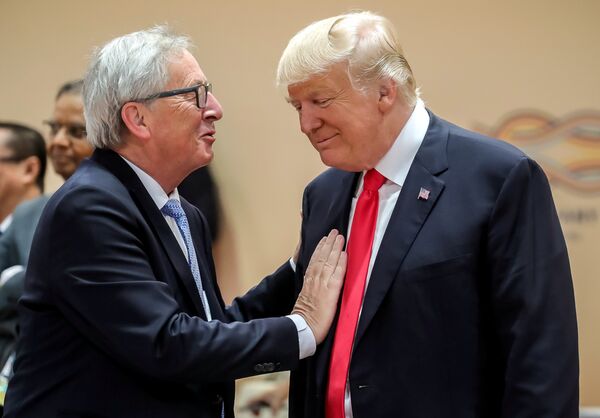
Over the weekend, US Congressional leaders said that they had reached a bipartisan agreement on broad new sanctions legislation against Russia for its alleged meddling in the 2016 US presidential election, as well as 'aggression' against its neighbors. A vote on the bill is expected in the coming weeks, after which it will land on the president's desk for signing.
The new sanctions include restrictions in the energy sector, and specifically target the Nord Stream 2 project, a joint venture involving Russian energy giant Gazprom and energy companies from Germany, France, Austria, the Netherlands and the UK to bring Russian natural gas to Western Europe via a pipeline in the Baltic Sea. The bill explicitly threatens to target European companies working with Russia on the project, leading to consternation in Brussels.
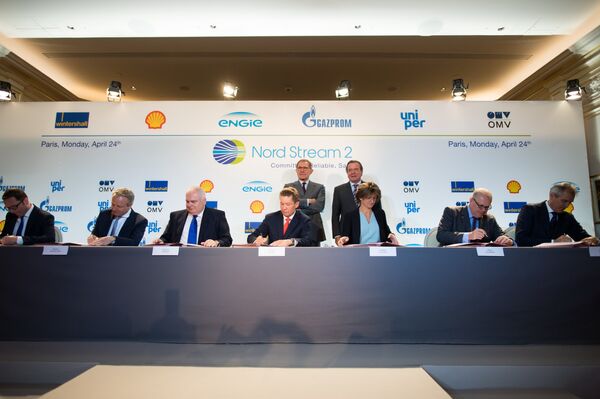
Speaking to Sputnik, political scientist Vladimir Shapovalov, deputy director of the Institute of History and Politics at Moscow State Pedagogical University, said that Brussels' threats of 'retaliation' against Washington are a sign that the growing economic competition between the EU and the US may factually result in a split in Western sanctions policy, and the Western 'anti-Russia' bloc itself.
"Perhaps the most important effect from the possible introduction of sanctions is that the united bloc of Russia's opponents is being destroyed," Shapovalov said. "US sanctions policy, which had [previously] been consistently supported by the EU, now threatens to turn into a sanctions policy directed against the EU itself."
In other words, Shapovalov noted that an extremely interesting situation has emerged. If before "the US, the EU and their allies acted as a united front [against Russia], at the moment we're seeing the opposite situation. The US, by introducing this package of sanctions, is fighting not so much against Russia as they are against the EU. Factually, this is an economic competition between the US and the EU, and Washington is putting European countries in a very disadvantageous position."
